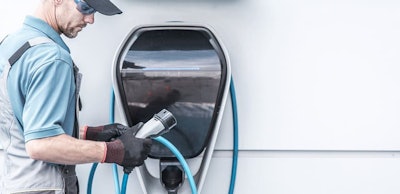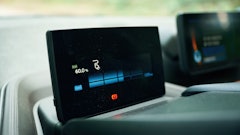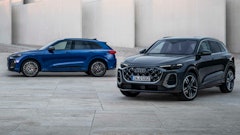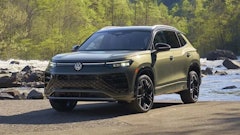
Toronto, Ontario – In this week’s report, General Motors teases a new EV, Canada scores 13 out of 14 in EV readiness and three Japanese automakers are called out for inadequate decarbonization efforts in the shift to EVs. This is the latest in electric and autonomous vehicles.
And EVs for All
General Motors (GM) has announced a move that strangely enough, has not been attempted much– to design and launch an electric vehicle for the mass market, rather than luxury consumers only.
According to a GM press release on Sept. 8, Chevrolet’s 2024 Equinox EV starts around $30,000, and is expected to be the most affordable compact SUV on the market. GM estimates that the vehicle will have a 300 mile range on a full charge and promises that the vehicle “won’t change your daily routine — except that you will no longer have to stop at the gas station.”
“We are at a turning point where EVs will be the mainstream choice for the next generation of customers and Equinox EV will lead this charge for us,” said Mary Barra, CEO of General Motors. “We are bringing to market vehicles at nearly every price point and for every purpose.”
Participation Trophy
Canada has earned the second worst position in EY Electric Vehicle Country Readiness Index, with India being the only country trailing behind.
Produced by professional services firm, Ernst & Young, the scale measures the top 14 vehicle markets for the arrival of EVs based on supply, demand and regulation.
China, Norway and Sweden were historically strong contenders in the global EV market, and remain in the top three thanks to a combination of government incentives, positive attitudes towards EV adoption and EV support structure – three factors that have gained significant prominence in Canada as of late.
So why doesn’t this translate to a higher score for Canada?
According to Ernst & Young, Canada has a strong energy ecosystem but struggles with EV adoption due to the high cost of EVs. While Canada has 18.2 charging points per EV, 8.2 higher than the recommended, part of this impressive figure is mitigated by challenges regarding affordability and EV accessibility.
“We have had all these great announcements, but so has the rest of the world, and they have done more,” said Lance Mortlock, managing partner at EY Canada, “It might feel like, why have we gone down? Other countries in terms of their infrastructure and investments, policies and regulations, have added to a greater extent than Canada.”
For more information, click here.
Thumbs Down
Three Japanese automakers have earned the ire of environmental group Greenpeace, who were the bottom three automakers in a study on the 10 largest OEMs globally, and their decarbonization efforts.
According to Greenpeace, global sales of EVs have doubled in 2021 but has not progressed equally across all manufacturers, with General Motors and Mercedes-Benz receiving the top scores this year. While all companies sold more combustion engine vehicles than zero-emission vehicles (ZEVs), Toyota had the poorest sales at one in 500 vehicles being a ZEV.
These poor rankings by Toyotas, Nissan and Honda are due to the company’s slow transition to ZEVs and weak climate targets, creating a gradual but painfully slow decarbonization of its supply chain.
For the full press release by Greenpeace, click here.




















